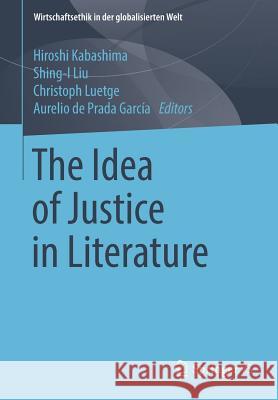The Idea of Justice in Literature » książka
topmenu
The Idea of Justice in Literature
ISBN-13: 9783658219956 / Angielski / Miękka / 2018 / 214 str.
Kategorie BISAC:
Wydawca:
Springer vs
Seria wydawnicza:
Język:
Angielski
ISBN-13:
9783658219956
Rok wydania:
2018
Wydanie:
2018
Ilość stron:
214
Waga:
0.36 kg
Wymiary:
24.41 x 16.99 x 1.19
Oprawa:
Miękka
Wolumenów:
01
Dodatkowe informacje:
Wydanie ilustrowane











